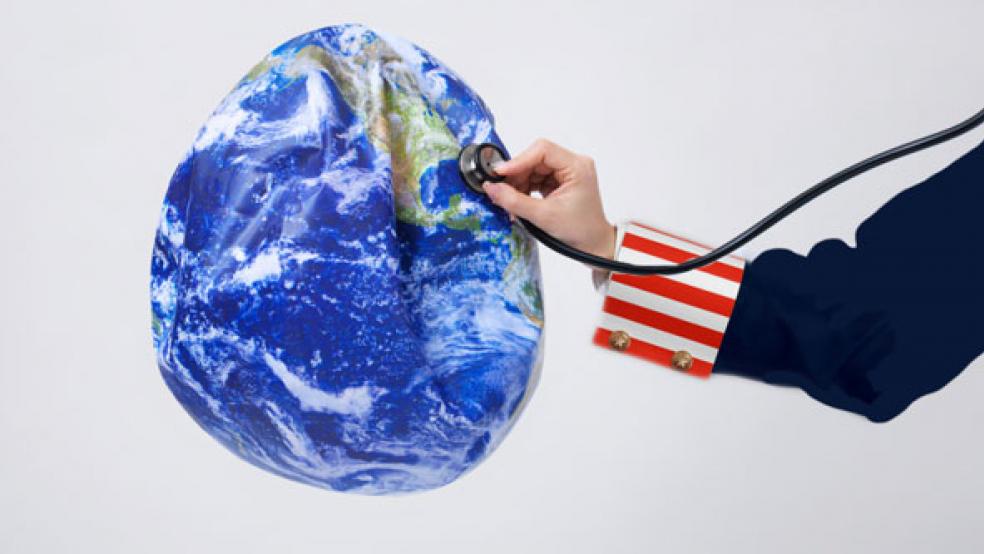We’ve been hearing from certain pundits for years now about how high inflation was just around the corner — how the Federal Reserve’s low interest policy and massive monetary stimulus would inevitably lead prices to spike, undermining the economic recovery.
Instead, the U.S. has now technically slipped into deflation for the first time since shortly after the Great Recession. Consumer prices as measured by the Labor Department fell 0.7 percent from December to January — the largest monthly drop since December 2008 — as the result of plunging gas prices. That left the Consumer Price Index down 0.1 percent from the previous year, the first such drop since October 2009.
Related: Americans Are About to Get a Nice Fat Pay Raise
Economists say the dip into technical deflation isn’t a cause for added concern, given that it was driven by an 18.7 percent drop in gas prices — and it isn’t really deflation anyway since that term really should refer to a general drop in prices, which isn’t what the U.S. economy is experiencing. The so-called core Consumer Price Index, which excludes the more volatile food and energy prices, rose 0.2 percent last month and 1.6 percent in the 12 months through January.
“This deflation is nothing to worry about,” Paul Ashworth of Capital Economics wrote to clients. “For a net importer like the U.S., lower gasoline prices are a good thing. Moreover, with the real economy doing well, there is little danger that this temporary bout of falling energy prices will develop into a more insidious debt-deflation spiral.”
Related: Why Oil Prices Will Rebound Before We Know It
If that’s the case, consumers might think of the recent drop in prices as a temporary sale that leaves them with a bit more purchasing power. “Overall, the big picture in the core is that goods prices are falling while most services — three quarters of the index — are rising, in line with wage gains,” Ian Shepherdson of Pantheon Macroeconomics wrote in a note. “We expect this bifurcation to continue as wage gains pick up. The size of the services component will prevent the U.S. suffering deflation, or anything like it, even as goods prices fall at a faster pace.”
Related: The Real Reason Walmart Is Raising Worker Pay
As they consider the timing of their first interest rate hike since 2006, Federal Reserve officials, including Fed Chair Janet Yellen, seem to agree. In her testimony before Congress this week, Yellen noted that the Fed’s preferred measure of inflation continues to run below the 2 percent target rate. Yet the central bankers are looking beyond what they expect to be a short-term dip.
“Despite the very low recent readings on actual inflation, inflation expectations as measured in a range of surveys of households and professional forecasters have thus far remained stable,” Yellen testified. “The [Federal Open Market] Committee expects inflation to decline further in the near term before rising gradually toward 2 percent over the medium term as the labor market improves further and the transitory effects of lower energy prices and other factors dissipate.”
Top Reads from The Fiscal Times:
- Walmart Changes the Debate on Minimum Wage
- Why Some Americans Will Never Give Up Their Guns
- America's 21st Century Challenge: Restoring Faith in Government





